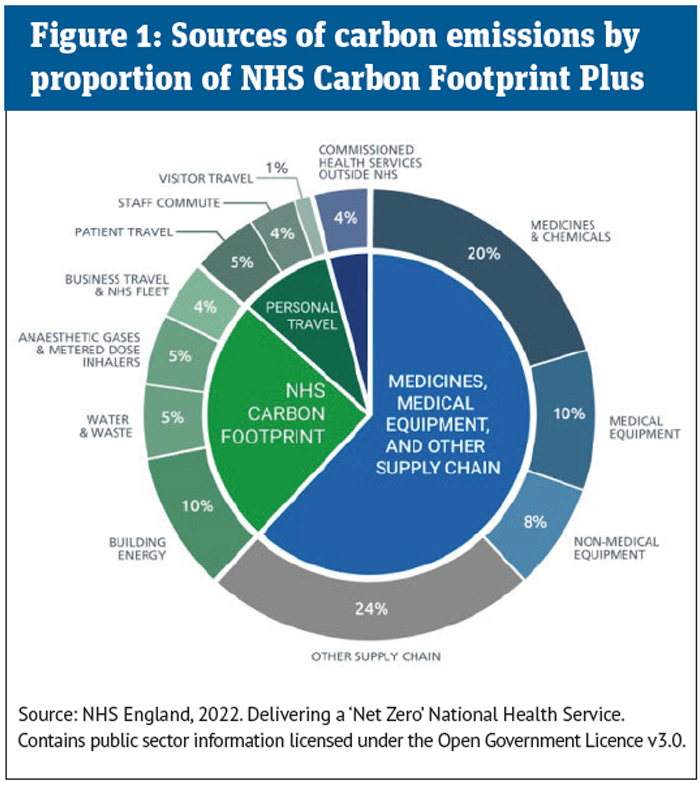In Clinical
Follow this topic
Bookmark
Record learning outcomes
By Morag Punton, FFRPS, MRPharmS
The NHS was the world’s first national health system to make net zero carbon commitments and, ahead of COP26, all four UK health services united to set targets to become net zero by 2040 (for emissions the NHS can control) and by 2045 (for the emissions the NHS can influence). Wales has a more aggressive timeline of 2030.
Around the nations...
The NHS Long Term Plan for England 2019 committed to significant reductions in the total NHS carbon footprint through a “shift to lower carbon inhalers” such as dry powder inhalers (DPIs), and away from pressurised metered dose inhalers. This is the equivalent to reducing the carbon impact of inhalers by 50 per cent by 2030. In 2021, updated NHS guidance for trusts and integrated care systems in England was published to support the production of local ‘Green Plans’, identifying inhalers as a key area for early action. In the same year the Royal Pharmaceutical Society formally recognised the scale and importance of the situation by publishing a climate declaration.
The Pharmacy Quality Scheme (PQS) 2022/23 in England includes a ‘Respiratory’ domain with five quality criteria. These focus on inhaler technique, inhaler waste management, patients aged five years and above having a personalised asthma action plan (PAAP), the use of spacers in children aged five to 15 years, and patients using three or more short-acting beta-2 agonist (SABA) inhalers without inhaled corticosteroid therapy.
As part of its Climate Emergency and Sustainability Strategy 2022-2026, NHS Scotland has committed to reducing emissions from inhaler propellants by 70 per cent by 2028, having dispensed around 4.5 million MDIs in Scotland in 2020/21.
The NHS Wales Decarbonisation Strategic Delivery Plan 2021-2030 sets out its roadmaps and commitments. Prescribers are encouraged to consider inhalers with “low global warming potential” as part of the All Wales Adult Asthma Management and Prescribing Guideline. Pharmacies can use the Greener Primary Care Wales Framework and Award scheme, which is due to relaunch in March 2023. Roughly 25 per cent of NHS emissions are attributed to medicines – so pharmacy is wellplaced to support net zero ambitions.
What can my pharmacy do?
What can you do to review energy efficiencies (e.g. LED lighting, reducing waste, identifying where plastics could be phased out for better alternatives or using more recycled plastic)? Does your business maximise recycling?
Do you encourage walking, cycling or getting public transport to work, or provide electric charging for vehicles? Discuss this as a team. Who is passionate about this and what ideas do they have?
What can you do to support them to make more sustainable choices? Do you participate in Novo Nordisk’s PenCycle scheme, for example? Do you stock toiletries that support a more environmentally-friendly lifestyle?
Understand who you are doing business with. What policies and commitments do they have concerning sustainability?
What is happening in your community? How can your pharmacy support this?
You might get some inspiration by looking at who is already making progress. The ‘Greener NHS’ section of NHS England’s website shares some case studies and success stories to get you thinking.


